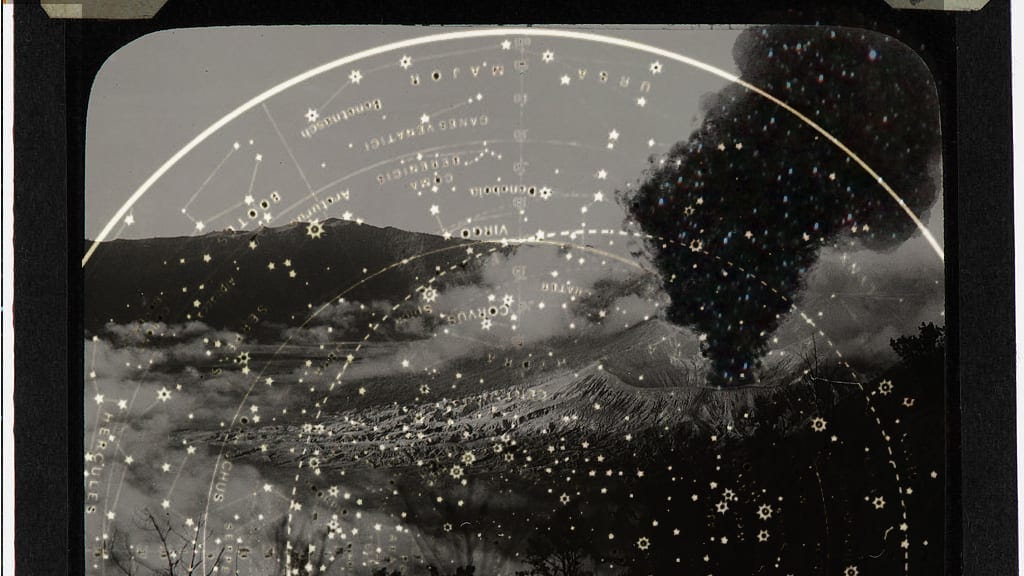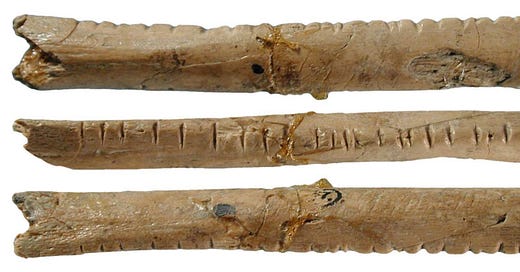Black Is Analytics
Welcome to issue #5 and the start of our new theme, analytics! 🧮
If you're just joining us, we spent last month learning about Black wealth building and money. With March now upon us, we felt that there couldn’t be a better way to celebrate Women’s History Month than to build on the wealth of the Black diaspora by honoring the contributions of Black women in mathematics.
This month, you’ll learn about the world’s earliest calculator, skilled mathematicians who were enslaved, human computing that put men on the moon, and STEAM education that reconnects us to the roots of how we observe, analyze, and experiment in the world.
We'll continue to explore together and collectively become the change that we want to see in our own lives, homes, and communities. Black To School is part of a broader movement focused on celebrating Black people and Black contributions around the world.
Let’s study how we invented, mastered, and currently use math in every part of our society throughout March! In this issue we’ll:
Learn about Lebombo and Ishango bones, ancient “calculators,” created by early African women.
Share resources and highlight games that you can use to expose and unlock your inner math genius.
The Original Counting Tool
Contributor: Ama Cobbina
Whether we're shopping online, driving to school, cooking something yummy, or calling a friend, we're benefiting from equations and algorithms that help us do things easier, faster, and with the collective knowledge of many before us. Given how critical math is in our everyday lives, naturally we’re curious to understand who the pioneers were in this field and what they used it for “way back when.”
As we delve into prehistoric times, it’s important to reflect on our understanding of what history is.
History is a story of past events, and the study of history is an active conversation about what we know; why it is important; and how we prove it. There is often debate about the evolution of human knowledge, particularly as it relates to the contributions of Africa and the African diaspora. We must recognize the role that strategic social and economic power dynamics play in which version of history is written and broadcasted.
Even with verified artefacts and other credible accounts, there continues to be bias and resistance to accepting the contributions of Black people and communities. With that in mind, it’s critical for us to continue to study and understand evidence-based alternatives to the dominant narrative in an effort to form the most accurate stories of all human existence. Let’s get to it!
What if I told you that African women were the world’s first mathematicians?
The earliest examples of advanced math in the world are all from the African continent. Did you know that our ancestors (long before the rest of the world) applied complex calculations to everything from agriculture, art, architecture, and astronomy to academics, accounting and even armed conflict? And those are just the A-words! 🤓 Check out this University at Buffalo chart of all of the African countries that ingeniously used math and computation during ancient times.
The discovery that sent shockwaves through the math-loving world was the Lebombo bone, considered the oldest mathematical object in the world. It was found in the Lebombo Mountain range between South Africa and Swaziland and is at least 43,000 years old (side note: there are other technical tools in Africa which date as far back as 80,000 years)! The Lebombo bone is made from a baboon fibula, and it has an intentional pattern of markings that led scholars to suggest it as the first prehistoric calculator.

Theories about its use range from a numerical tally stick to a lunar phase calendar (watch this short video by HomeTeam History to understand the significance of this artifact). Because there are 29 notches in the Lebombo bone, there’s a strong belief that it was either used by African women to track their menstrual cycle and/or for agricultural record-keeping, both of which require systematic monitoring, data gathering, computation and prediction of the cycles of surroundings, plants, animals, and celestial bodies (aka observable time).
Whatever the application, it suggests Black women were the first mathematicians on the planet! To put that into perspective, the African women who marked Lebombo and later Ishango bones gave birth to the field of math 34,000+ years before celebrated Greek mathematicians Thales and Pythagoras.
These mathematical tools were a foundational step in the advancement of knowledge within the field. In later periods, throughout Africa and the rest of the world, tally sticks like the Ishango bone were used for business and financial records in places like China, Italy, France, and England. Even today, the San people of Namibia use a calendar that closely resembles the prehistoric tools originally found in the Lebombo Mountains.
The math used by our African foremothers and forefathers is humbling, but not surprising. Their natural mathematical abilities and contributions are part of our rich inheritance to celebrate and carry forward. Black people have always used analytics throughout history and continue to today, our potential and possibilities are limitless.
🛠️ The Black To School Toolkit
Now What? Dig Deeper with Friends, Family, and Others.
Interested in learning more about the Lebombo bone and other African contributions to the field of math? Check out this article by the lnstituto Superior Pedagogico in Mozambique. Want a deeper dive into math in Africa? Read Africa Counts by Claudia Zaslavsky. Also, watch this 3-minute CNN interview on the Lebombo bone.
Want to have some fun practicing math and learning about Africa with your kids? Here’s a great video for kids! Now let’s get into games! Try African MathMind Games (for Pre-K through 6th grade) by ST Math. Their spatial-temporal learning approach is delivering amazing results in schools across the country.
Looking for some quick ways to learn about African mathematical innovations? Dr. Scott W. Williams has compiled a comprehensive chart and timeline of African Diaspora math contributions. Want to go broader? Read these two minute briefs about the evolution of math in various cultures around the world.
Skeptical about the important role of Africa in the mathematical sciences? Grab a comfortable seat and watch this eye-opening lecture hosted by the World Federation of Science Journalists and presented by Thierry Zamahoun, head of The African Institute for Mathematical Sciences.
Still not satisfied with information out there on Africa? Contact your local schools, universities, and institutions! Organizations like the Smithsonian, the UNESCO General History of Africa, and others have a mission to deliver this type of data-driven, inclusive, global research and information.
⌛ The Black To School Timeline
Black People Have Always Used Analytics.
In this issue, we got a glimpse of the Stone Age (Over 43,000 Years Ago) The Thing: Lebombo bone, the first calculator in the world, created by African women, which laid the groundwork for advanced math used around the world.
Next week, we’ll step into the 17th & 18th Century (About 300 to 400 Years Ago) The People: Enslaved mathematicians, including Thomas Fuller and Benjamin Banneker, whose genius and contributions defied and threatened the institution of slavery and racial supremacy.
About This Week’s Contributor
Ama Cobbina
My name is Ama Cobbina, and I am the founder of mAt design - a marketing and business development consultancy that seeks to develop new combinations of economic and technological tactics in order to develop conscious businesses. I am also a marketing strategist, technologist, life long learner, aspiring space architect and astronaut, and a huge advocate for joy and lazy days.
I am inspired to be part of the visionary power behind Black to School and its mission to provide intergenerational learning. We are excited about normalizing knowledge about the contributions of African and Black thought to our planetary progress. My hope is that as you read our newsletters, engage in the community, and share these ideas, it will support and strengthen your belief in your ability to achieve anything that you can imagine.
About Black To School
Black To School is a collaborative volunteer effort focused on sharing Black history, collecting helpful resources, and creating a safe space for discussion. Learn more about us here and feel free to join our Slack community to keep the conversation going. People of all backgrounds are welcome!
If you’re passionate about this type of work and want to help out, please let us know! The best way to get in touch is by emailing info@blcktoschool.com with “volunteer” as the subject, or by joining our Slack community and sharing that you’d like to be involved.






